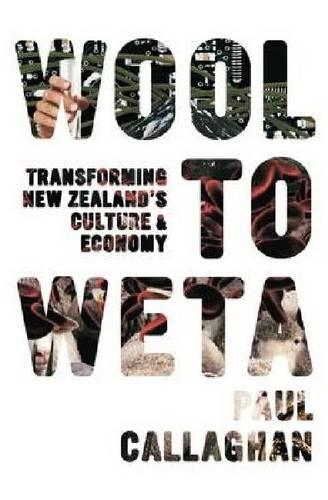
Wool to Weta: Transforming New Zealand's Culture and Economy
(Paperback)
Publishing Details
Wool to Weta: Transforming New Zealand's Culture and Economy
By (Author) Paul Callaghan
Auckland University Press
Auckland University Press
1st January 2009
New Zealand
Classifications
General
Non Fiction
Economic growth
Development economics and emerging economies
Industry and industrial studies
338.993
Physical Properties
Paperback
Description
Victoria University physicist Paul Callaghan has given a series of public lectures around New Zealand, sponsored by the David and Genevieve Becroft Foundation and the Royal Society of New Zealand, entitled 'Beyond the Farm and the Theme Park'. The lectures have been on the subject of sustainable wealth generation and culture change. Callaghan argues that if New Zealand keeps relying on tourism and farming we will fall all the way to the bottom of OECD rankings pretty quickly. What's the alternative He argues that New Zealand's future lies in emerging industries based on science, technology, and intellectual property exemplified by companies like WETA, Fisher and Paykel Healthcare etc. Callaghan has interviewed a number of New Zealanders involved in wealth generation through science-based business, in economic thinking and leadership, in investment and in education and philanthropy. Where does New Zealand's competitive advantage lie What should we make of the key roles of tourism and farming in the economy Is new business development likely to come out of those sectors or from outside them What role should government play in science and economic development How does the culture of New Zealanders align with our possible economic futures The interviewees have different answers to these questions and Callaghan has a strong point of view.
Author Bio
Paul Callaghan was born in Wanganui, New Zealand. He obtained his Doctor of Philosophy degree from Oxford University, working in low temperature nuclear physics. On his return to New Zealand he began researching the applications of magnetic resonance to the study of soft matter at Massey University, and in 2001 was appointed Alan MacDiarmid Professor of Physical Sciences at Victoria University of Wellington. He also heads the multi-university MacDiarmid Institute for Advanced Materials and Nanotechnology. Paul has published around 220 articles in scientific journals, as well as Principles of Nuclear Magnetic Resonance Microscopy (Oxford University Press, 1994). In 2001 he became the 36th New Zealander to be made a Fellow of the Royal Society of London. He is a founding director of magritek, a small Wellington-based company that sells NMR (nuclear magnetic resonance) instruments.
